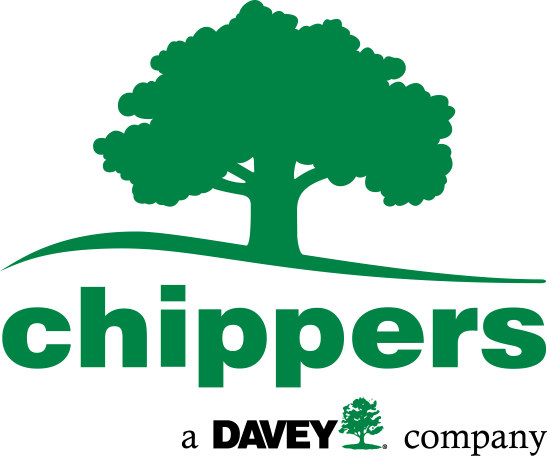There are many good reasons to consider adding organic treatments to your typical lawn care program. Even if you have never thought about organic lawn care treatments, thought them pricey, or even useless; take a minute and consider the benefits to you and your landscape. Before you select any organic lawn care treatment, it is a prudent to understand the benefits to your lawn, how companies differ, and the cost to you as a consumer.
The benefits derived from organic turf care treatments are the easiest to explain because it simply makes sense in the big picture of how things grow and interact in the environment. The core philosophy of organic lawn care begins with the soil and what lives within it; mainly living things. A healthy soil should be filled with various bacteria, fungi, protozoa, and other microscopic friends. The soil itself should contain organic matter which assists in water retention and provides a food source for our microscopic workers. As our friends breakdown organic matter in the soil, vital nutrients and minerals are released and become available to our lawn. A healthy soil will also have air pockets to help support plant roots ranging from trees and shrubs to of course, our lawns.
A lawn with air pockets and organic matter is less likely to be compacted and is more likely to hold onto anything applied to your lawn, from fertilizers to lime or other treatments. Conversely, a sandy soil with lower organic matter or a compacted soil like those containing a high amount of clay are more likely to have runoff or allow products to move into or toward ground water. As you can see, soil health and structure is very important when it comes to growing plants and can be the root of all problems, no matter how much money you throw at your landscape. If your soil is out of balance, your lawn will be more susceptible to many issues ranging from disease, insects, weed infestation and more. Soil health must be the foundation of any sound lawn care program from conventional, organic, or a combination of the two, also known as a hybrid system approach. Organic applications are simply the real deal in terms of improving the overall health of your lawn’s soil.
So how can we improve and then keep our soil healthy since it is the foundation of any lawn care program? Vital organic treatments would include compost tea, high calcium lime, topdressing, aeration, over seeding, and even fertilizer. Compost tea adds our microscopic friends to any soil and is sprayed on as an effective means to improve soil health. Compost tea can also deliver organic matter and other food sources to enrich loam which would otherwise may be low in organic materials and therefore not as healthy. High calcium lime provides a fast pH change in the lawn and is more potent than conventional limes. High in calcium, this type of lime also assists in reducing compaction and interacts with organic matter for improved nutrient availability when surrounded by our microscopic friends.
Topdressing is an excellent way to add organic matter to your lawn while also creating a seed bed for filling in those bare or thin spots; a double bonus. Followed up by aeration and over seeding, these two organic procedures do wonders for opening up the soil, allowing air to filter down and reduce soil compaction while promoting wonderful seed germination and a thickening agent to any lawn. These are just the basic elements of Chippers organic lawn care program. There are many other organically oriented lawn care treatments we offer that can be viewed at http://www.mrgrassblog.net/chippers-lawn-care-offerings/ for a complete services listing. For now, let’s move on to differences in real field experience between lawn care companies.
Choosing a company to do organic lawn treatments is no easy task. After all, anyone with a pickup and some basic equipment can claim to have an organic lawn care program; but do they? You should certainly consider real field experience in terms of how long have they actually done lawn treatments. Did they purchase a franchise or have they been in the industry for years? Does anyone in the company have a background or education in the turf industry as it relates to organic lawn care? These are important questions and separate true professional turf care companies from those who simply don’t have the goods on paper or in reality.
One last cautionary tidbit, even an organic product used to “control” a lawn problem must be state licensed and certified in NH & VT. Check to make sure the technician doing the work is licensed. Even organic products have the potential to cause harm in an inexperienced worker’s hands. This all underlines the importance of experience, education, and what you as the end consumer will ultimately be paying for your lawn care service; organic or otherwise. The classic adage, “you get what you pay for” could never ring so true. A sincere and clear word of advice; ask the questions before you hire a lawn or landscape firm claiming to have the perfect program.
Our final topic ends with the cost to you as the consumer. Whether you have a 100% organic lawn program, a hybrid version, or a conventional one sprinkled with some organic treatments; there are long- term cost benefits to using non mainstream lawn products. For instance, a healthier soil requires less long- term inputs such as fertilizer. Even though the cost per treatment can generally be more upfront to get your lawn to where you want it to be, the savings come after 3-4 years of following an organic approach. I have seen benefits from incorporating even a few organic treatments annually into what we would consider a mainstream or conventional approach.
Bottom line, if you mow properly, irrigate correctly when needed, have the right grass types present for your location, and support a healthy soil through a prescribed lawn program, you will have a nice lawn. I will say it again, you will have a nice lawn, but these rules need to be followed like a prescription. It is easy to just spray weeds and watch them disappear; it’s harder to properly improve your lawn’s overall health when so many other factors are at play. Like any ecosystem or micro climate, changing the balance of one thing affects another. Mow your lawn too short and boom, you just got crabgrass. There is clearly a place for more organic lawn treatments in any community as it relates to reducing overall pesticide use as a real tool for landscape care. Yes, the upfront cost may be more, but what is the long-term cost of doing the same thing year after year…with diminishing results?
Food for thought and I thank you for considering this article and others on our blog. May spring come sooner than later!


